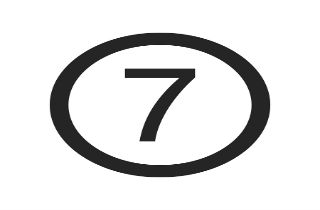Drugs can create a wall to creativity
By Ted Brown, Singer, Songwriter and Former Addict
After years of believing that my creative inspiration was only available with the help of mind and mood altering substances, it was a slow process coming to believe that my work as an artist was not at the beck and call of my addiction. I couldn’t deny that at some point in my using history (before I became hopelessly addicted) that some of my substance use had ‘opened me up’ creatively, but for the last several years I used, drugs became the wall between me and my creativity rather than the conduit.
Until I had permitted myself to try writing songs in recovery, it was unclear whether I would be able to access that intangible flow of creativity without drugs and if I could, what the results would be. I believe my first attempt came in treatment when I wrote a short satirical blues in honor of one of my counselors entitled,’If You Do What You’ve Always Done, You’ll Get What You Always Got’ which was a parody of one of her most often repeated pieces of advice! For me, writing something light and fitting it easily into a standard 12 bar seemed like an easy stepping off point.
After that, the universe provided me with all the opportunities and inspiration I needed to reinvent myself as a much better songwriter and performer than I had ever been while using. I’ve written a lot of songs since I’ve been clean and sober, some have come easier than others, but I know now for sure that I’m a more creative and capable person since getting clean with the patience and focus to follow projects through.
How to access creativity without drugs or alcohol
Here are some ways I’ve learned to access my creativity without drugs and alcohol…
1. Just Write!
Inspiration might meet me half way, but if I don’t make the effort ideas don’t (often) just fall out of the sky! I’ve found that setting aside time to just write down whatever comes into my head is a great way to get the juices flowing.
2. Read a lot.
I’m an avid reader, disappearing into a book was probably my first form of escaping reality. Now it’s easier than ever to access news, ideas and literature than can be inspiring and thought provoking.
3. Carry a notebook.
If I have a moment of inspiration, I’ll usually sing melodies into my phone so I don’t forget them. I also have a notebook on hand so I can jot down lyric ideas. Believing that I would ‘just remember’ has caused many good ideas to be lost forever!
4. Meditate.
Daily meditation has been a revelation to me. Half an hour every morning clears my creative canvas and leaves me open to inspiration and possibility.
5. Collaborate.
Holding on too tightly to my creative ideas sometimes means they just don’t end up seeing the light of day. By working and collaborating with other creative people, I get to see different perspectives and ways of thinking that help me grow as an artist and build a creative community.
6. Be of service.
Service to others is one of the most powerful antidotes to the self centeredness of addiction. It allows me to get my problems into perspective and helps me get out of my own head. It also helps me work on empathy which is key in creating art that people can relate to.
7. Discard the ‘black and white’ thinking.
When I finally got clean I spent quite some time struggling with the notion that I had a decision to make- grow up and get a real job or commit to a life of poverty and living in the margins so that I could follow my artistic dreams. Turns out that life isn’t so black and white! I’ve found that I’m capable of playing many roles and taking on responsibilities that I never dreamed I was capable of. But I will always be an artist, I will always create- it’s just who I am.









Related Posts